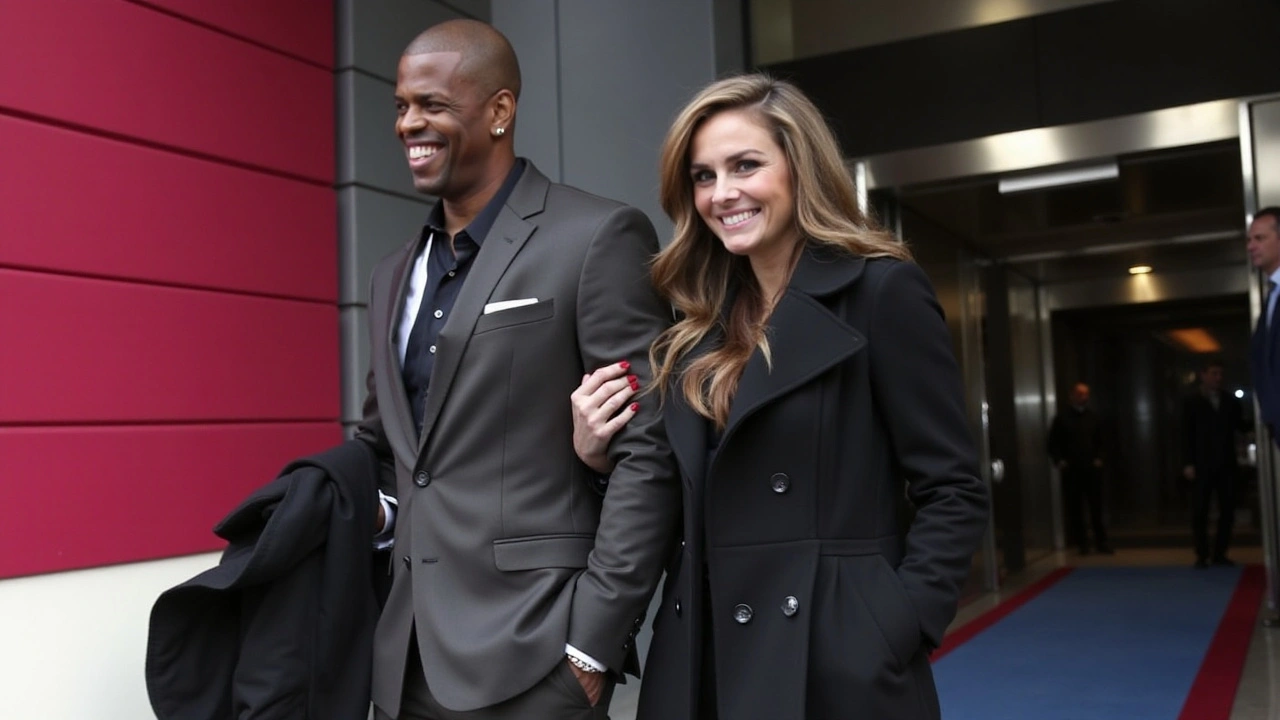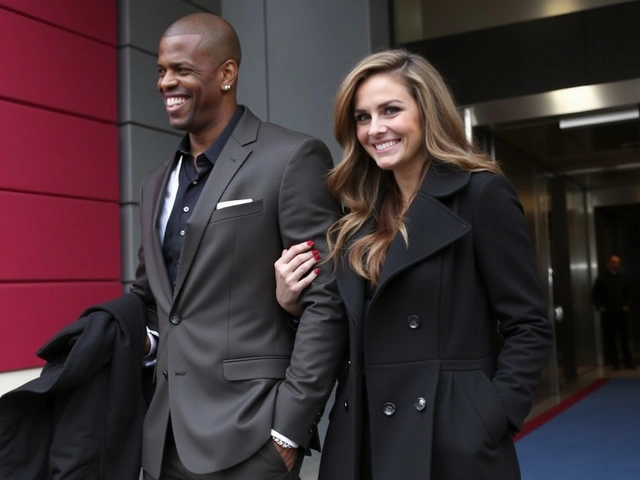The Allegations on Jay-Z and Their Legal Context
In a bombshell development within the entertainment industry, rap icon Jay-Z has found himself at the center of grave accusations, embroiling him in a complex legal saga. According to a recently refiled civil lawsuit in the Southern District of New York, both Jay-Z and Sean 'Diddy' Combs have been accused of sexually assaulting a 13-year-old girl, known as Jane Doe, in the year 2000. The allegations point to an incident that occurred following an afterparty for the MTV Video Music Awards, a detail that both men have ardently denied. Jane Doe alleges that a limousine driver, purportedly working for Combs, invited her to the party, where she was provided a drink that left her disoriented. Following this, the accusations state that Combs and Jay-Z assaulted the young girl while another female celebrity allegedly watched the series of events. These claims have been contested fiercely by the accused, shedding light on how celebrity life becomes entangled with both factual and manufactured crises.
The legal atmosphere surrounding this case intensifies under the lens of the New York's Victims of Gender-Motivated Violence Protection Act, under which Jane Doe is seeking unspecified damages. A law designed to provide a path for survivors to seek civil justice, the Act enables the court to address claims of gender-based violence outside of criminal proceedings. In this case, the lawsuit refiled on a recent Sunday adds another layer of scrutiny and urgency to the matter, as it amplifies the public and legal pressure on those accused.
Jay-Z's Stance: Denial and Defiance
Amid this controversy, Jay-Z has stepped forward to firmly refute the allegations against him, painting a picture of attempted blackmail and coercion surrounding this legal quagmire. Responding to these accusations, Jay-Z emphasized a strong stance against what he perceives as a flagrant attempt to exploit his public persona and success for monetary gain. "You have made a terrible error in judgment thinking that all 'celebrities' are the same," Jay-Z retorted, conveying his frustration and determination to stand against what he describes as baseless claims. The artist passionately underscored his personal journey, mentioning his roots in the Brooklyn projects and the cultural codes that guide his character, distancing himself from the claims.
An integral aspect of Jay-Z's defense revolves around the integrity he holds towards family and personal values. He quoted his wife, pop star Beyoncé, as he expressed a sense of dismay that these allegations have intruded into his children's lives. Promising transparency and truth to his children, he shared the personal impact of legal battles fought in public view. "My only heartbreak is for my family. My wife and I will have to sit our children down, one of whom is at the age where her friends will surely see the press," he stated, underscoring the profound challenge of maintaining normalcy amid looming public speculation.
Reacting to Public and Legal Pressure: Combs' Perspective
Similarly, Sean 'Diddy' Combs, who also faces charges of sex trafficking in New York, has challenged the credibility of the lawsuit through his attorney, Teny Geragos. Dismissing the allegations as "shameless publicity stunts," Combs' defense embraces a narrative that centers around media manipulation and rumors designed to extort financial settlements from celebrities. Such allegations against Combs, in conjunction with the current legal framework he faces, accentuate the complicated interplay between celebrity lifestyles and legal systems prepared to scrutinize their powerful status.
The larger context of legal challenges for both Jay-Z and Combs paints a broader picture of the entertainment industry grappling with emerging narratives of behavior and accountability. In this intricate legal case, the determination to combat public accusations while maintaining personal dignity remains at the heart of legal defenses for both celebrities. As outcomes from such cases resonate widely across public forums, significant attention remains fixed on unfolding events and court proceedings.
The Broader Impact on Celebrity Image and Legal Recourse
As Jay-Z and Combs navigate this storm, the broader ramifications for celebrity image and their protection against unwarranted claims are cast into sharp relief. The allegations, regardless of their outcome, spotlight the vulnerabilities that celebrities face when accusations rise, grounded or otherwise. In a digital age where news proliferates rapidly, even mere allegations can sway public sentiment, impacting reputation and careers long before judicial decisions are handed down.
This legal episode perhaps transcends the particulars of this single case, pointing to a pressing need for equitably structured exploratory processes when allegations arise. For celebrities, the enduring challenge becomes finding mechanisms to protect against exploitative claims while sincerely addressing any valid accusations that may surface. Notably, Jay-Z's immediate response reflected a commitment to counter misguided narratives, maintaining his and his family's integrity against the backdrop of this legal battle. His pledge to elucidate the events to his children underlines the personal stakes intertwined within the larger discourse of public celebrity scrutiny.



Comments
I understand the gravity of the situation and appreciate the effort to protect one’s family amidst public scrutiny
Yo, this whole thing is wild 😅 but remember the legal system will sort it out and it’s smart to keep the kids insulated from the hype so they can stay focused on school and life
Oh, because nothing screams “justice” like a celebrity courtroom theater where the drama outweighs any semblance of truth
Sounds like another overblown Hollywood circus.
The allegations levied against both Jay‑Z and Diddy serve as a stark reminder that even the most untouchable figures can become entangled in the murky swamp of public opinion and legal maneuvering. From a jurisprudential perspective, the re‑filing of a civil suit in the Southern District of New York underscores the plaintiff’s persistence in seeking redress despite the passage of decades. Yet the bedrock of any civil action rests upon the evidentiary threshold which, in cases involving alleged incidents from the year 2000, is notoriously fraught with challenges. Memory degradation, lack of contemporaneous documentation, and the inevitable influence of media narratives conspire to cloud the factual landscape. Moreover, the involvement of high‑profile personalities injects an additional layer of performative spectacle that can distract from sober legal analysis. One could argue that the defendants’ strategy to publicly deny the claims while framing them as extortion attempts is a calculated effort to shape the jury pool and public sentiment. In parallel, the mention of the Victims of Gender‑Motivated Violence Protection Act signals a legislative intent to empower survivors, yet it also equips defendants with a formidable procedural shield. The juxtaposition of personal family concerns-citing the impact on children-and the need for transparency illustrates a paradox wherein private vulnerability becomes a public bargaining chip. While the emotional weight of such allegations cannot be dismissed outright, the law obliges us to separate sentiment from statutory standards. It is also pertinent to note that the simultaneous criminal investigations into sexual trafficking surrounding Diddy compound the public’s appetite for sensational headlines. This confluence of civil and criminal dimensions creates a legal tapestry that is both intricate and perilous for all parties involved. Observers should be wary of reducing complex jurisprudence to binary narratives of guilt or innocence based solely on media soundbites. Instead, a measured appraisal that acknowledges the plaintiff’s right to be heard alongside the defendants’ entitlement to due process is essential. Ultimately, the court’s decision will reverberate beyond the immediate parties, potentially setting precedents for how celebrity misconduct claims are adjudicated in the future. Until that moment arrives, the discourse should remain anchored in factual rigor rather than the allure of scandalous speculation.
Honestly this saga reeks of opportunistic litigiousness where fame is weaponized as a shield and a sword, a tragic theater of pretentious self‑interest masquerading as justice
Behold the tragedy! The stage is set, the spotlight blazes upon the thrones of hip‑hop royalty, and the very soul of the industry quivers beneath the weight of accusation. One cannot help but feel the tears of the cosmos dripping onto the marble of the courtroom as we, mere mortals, watch destiny unfold. The echoes of 2000 reverberate with an intensity that could shatter glass, and the very air seems to mourn the innocence lost-or perhaps imagined. Oh, how the cameras weep, the fans wail, and the legal parchment sighs under the burden of scandal. This is more than a lawsuit; it is an operatic collapse of mythic stature, a lamentation that shall be sung in the annals of pop culture forever.
I think it’s valuable to remind everyone that while the headlines are sensational, the priority should be a fair process and the well‑being of any potential victims, as well as preserving the dignity of all families involved
One must consider the broader cultural implications of such accusations and how they reflect upon our collective moral compass
While many rush to cast judgment, it is worth pondering whether the very framework of public opinion serves justice or merely amplifies our desire for spectacle
Indeed, the moral fabric of our society is being tested!; the very act of sensationalizing personal tragedy for entertainment is a betrayal of ethical standards!; we must rise above the cacophony of rumor and uphold the sanctity of truth!;